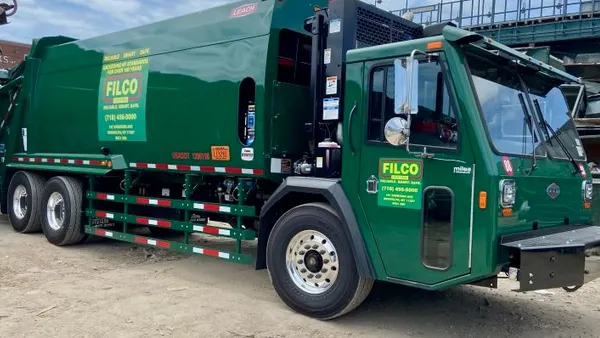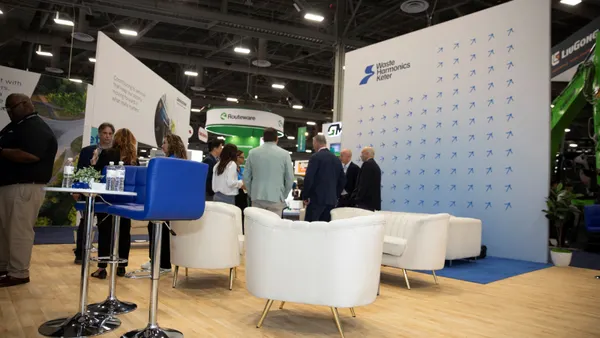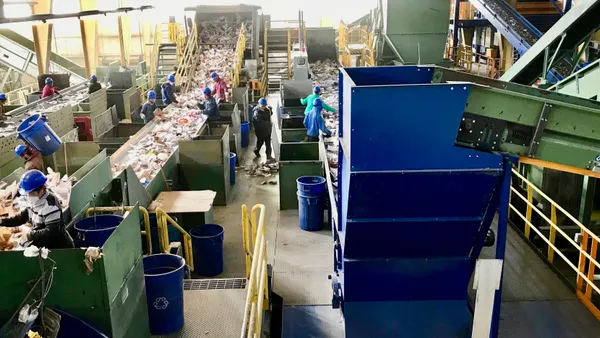Dive Brief:
- Minnesota-based Organix Solutions recently announced it has received full patent approval for its unique organic waste co-collection system. This includes the company's proprietary collection, processing and bag technology.
- Using the company's bags, customers can place their source-separated organic material in the same cart or container as refuse. That bag can then be collected in one truck and sorted at a transfer station for further processing.
- Both the Minnesota Pollution Control Agency (MPCA) and Aspen Research Corporation have independently verified that Organix Solutions bags won't break during compaction. The bags have also been certified by the Biodegradable Products Institute.
Dive Insight:
While Minnesota isn't often mentioned in the same breath as other states with organics policies — such as California, Vermont, or Massachusetts — it has set a 75% recycling goal for 2030 that spurred a lot of early action. A tax exemption for diverted material is also a key driver. Organix Solutions is a wholly-owned subsidiary of Randy's Environmental Services, which helped roll out Hennepin County's first curbside organics collection service in 2003. Since that first one started in the small city of Wayzata the number of programs serviced by Randy's has grown to 31 communities.
"Minnesota is ahead of what other states are doing. You'll find that other states have mandates...but they haven't developed the infrastructure," said Jim Wollschlager, CEO of Organix Solutions and COO of Randy's. "Unless you support the processing then you're not going to have the behavior that you're looking for."
The problem Wollschlager saw in the initial communities was that participation was still lower, even in well-performing areas, and it wasn't working to collect those routes with dual-compartment trucks. So they switched over to a single truck for the organics route, but then those routes didn't seem efficient. Wollschlager first started thinking about the co-collection concept after a resident in the city of Loretto questioned him about the emissions trade-off between diversion and extra truck miles.
After much consultation, testing and studying — including by the state's Department of Revenue because the tax exemption only applies to separated waste — the Organix concept came to life. Eventually all of the communities serviced by Randy's made the switch. With the exception of Minneapolis, their technology is now the primary organics collection method in the region. According to Organix Solutions, years of use have shown that their bags don't break and can in fact encourage more participation among residents. Whereas, as Wollschlager pointed out, the cart-based program in Minneapolis has been reporting low volumes. Randy's has also seen results from an operational standpoint.
"We switched all of our contracts from the separate truck to the blue bag and green bag organics program and you know immediately your costs just drop off the table. You're taking a truck off the road, you're taking those carts out of the system, you're taking the drivers out," said Wollschlager. "Drivers especially are things that are a really valuable commodity in today's market."
Earlier this year, Organix Solutions also announced plans for a sorting robot at the Randy's transfer station with capabilities to specifically pick their bags off the tipping floor and divert them for processing. Following attention from that announcement, and this new patent approval, the company feels it has a stronger claim to make around the country. Efforts are underway to bring the technology to other regions with a focus on organics by partnering with municipalities or private companies. As food waste diversion becomes a higher priority, but the costs of collection remain an obstacle for many programs, this concept may catch on beyond Minnesota sooner than not.









